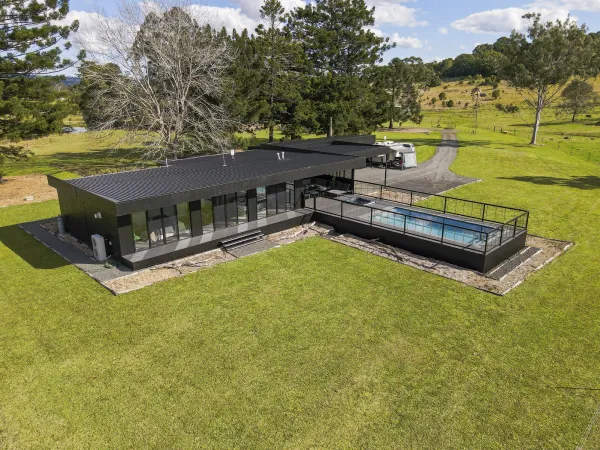
Content provided by WestBuilt Homes
In recent years, modular homes have emerged as a popular alternative to traditional housing, offering flexibility, affordability, and sustainability. These prefabricated structures are built off-site and assembled on location, providing numerous benefits for homeowners and investors alike. In this article, we’ll delve into the world of modular homes, examining their advantages, and also explain the importance of a tax depreciation schedule in Sydney for those considering this innovative housing option.
What are Modular Homes?
Modular homes, also known as prefabricated or prefab homes, are constructed in sections or modules in a controlled factory environment. These modules are then transported to the construction site and assembled to form a complete home. Unlike traditional homes built entirely on-site, modular homes are manufactured to precise specifications, ensuring high quality and consistency.
Advantages of Modular Homes
- Speed of Construction: One of the most significant benefits of modular homes is the speed of construction. Since the modules are built in a factory, work can continue regardless of weather conditions, reducing construction time significantly. This efficiency means that homeowners can move into their new homes much faster than with traditional builds.
- Cost-Effective: Modular homes are generally more affordable than conventional homes. The controlled manufacturing process reduces labor costs and minimizes material waste. Additionally, the shorter construction time translates to lower financing and labor costs.
- Quality Control: Building homes in a factory setting allows for strict quality control measures. Each module is inspected throughout the construction process, ensuring that the final product meets high standards of quality and durability.
- Sustainability: Modular homes are often more environmentally friendly than traditional homes. The factory construction process reduces waste, and many modular home manufacturers use sustainable materials and energy-efficient designs. This results in a lower carbon footprint and long-term energy savings for homeowners.
- Design Flexibility: Modular homes offer a high degree of design flexibility. Homeowners can choose from a wide range of floor plans and customize their homes to suit their preferences. Modules can be combined in various configurations to create unique layouts and styles.
- Reduced Disruption: Since much of the construction work is done off-site, there is less noise and disruption at the home site. This is particularly advantageous for those building homes in established neighborhoods.
Modular Homes and Tax Depreciation Schedule in Sydney
Investing in modular homes can be financially rewarding, especially when you understand the tax benefits available. One essential aspect for investors and homeowners to consider is the tax depreciation schedule Sydney . In Sydney, this can play a crucial role in maximizing returns and reducing tax liabilities.
What is a Tax Depreciation Schedule?
A tax depreciation schedule is a detailed report that outlines the depreciation deductions available for a property. Depreciation refers to the decline in value of an asset over time due to wear and tear, and it can be claimed as a tax deduction. For modular homes, a tax depreciation schedule can help property owners claim significant tax deductions, thereby improving their overall financial position.
Importance of a Tax Depreciation Schedule for Modular Homes in Sydney
- Maximize Tax Deductions: A tax depreciation schedule allows property owners to claim deductions on both the building structure and the plant and equipment within the property. For modular homes, this can include items like appliances, flooring, and lighting. By claiming these deductions, homeowners and investors can reduce their taxable income and increase their cash flow.
- Enhanced Cash Flow: By claiming depreciation deductions, property owners can boost their cash flow. This extra cash can be used to reinvest in the property, pay down mortgages faster, or cover other expenses.
- Expert Assessment: Obtaining a tax depreciation schedule requires a professional assessment by a qualified quantity surveyor. These experts have the knowledge and experience to accurately assess the value of depreciable items in a modular home, ensuring that all potential deductions are claimed.
- Compliance with Tax Laws: Tax laws and regulations can be complex, and they change over time. A professional tax depreciation schedule ensures that property owners in Sydney comply with the latest tax laws, avoiding potential penalties and audits.
- Investment Appeal: For investors, having a detailed tax depreciation schedule can make a modular home more attractive. Potential buyers or renters will appreciate the potential tax benefits, making the property more marketable.
Conclusion
Modular homes represent a modern, efficient, and sustainable housing solution that offers numerous benefits over traditional construction methods. Their affordability, quality, and design flexibility make them an appealing option for homeowners and investors alike. In Sydney, understanding the importance of a tax depreciation schedule can significantly enhance the financial advantages of investing in modular homes. By maximizing tax deductions and improving cash flow, property owners can make the most of their investment while enjoying the many benefits that modular homes have to offer.
Whether you’re looking to build a new home quickly, reduce construction costs, or invest in a property with substantial tax benefits, modular homes present a compelling option. With careful planning and professional advice, you can leverage the advantages of modular homes and tax depreciation schedules to achieve your financial and housing goals.
